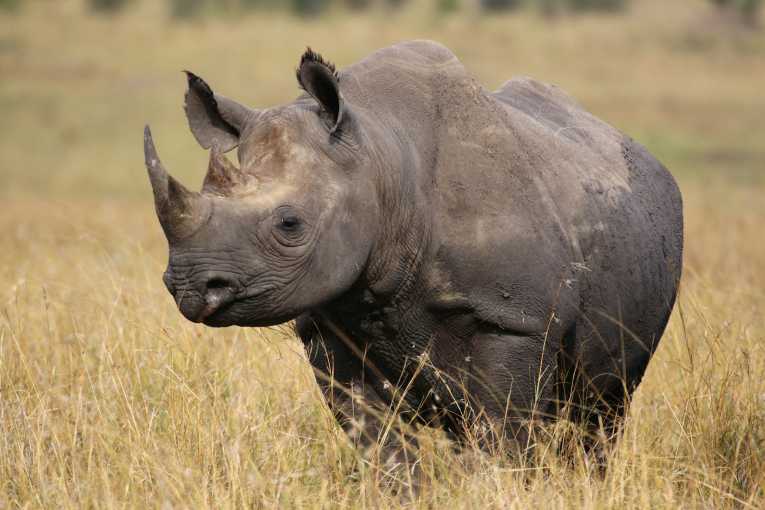More than 800 African rhinos have been killed in the past three years for their horns.
According to a press release from the IUCN, well-equipped, sophisticated organized crime syndicates are responsible from the upsurge in poaching, the most serious of which is in South Africa, Zimbabwe and Kenya.
Southeast Asian medicinal markets are driving the demand for rhino horns, with Vietnamese nationals in particular playing a major role in what is billed as a 'poaching epidemic'.
Populations of African rhinos had been rising over the past few decades, with the population of Critically Endangered black rhino increasing to 4,840 in the most recent estimate, up from 4,240 in 2007. Similarly, the population of white rhinos has increased over the same period by more than 2,500 individuals, with 20,150 now existing in the wild.
However, according to Dr Richard Emslie, scientific officer for the IUCN Species Survival Commission's (SSC) African Rhino Specialist Group (AfRSG), African rhino numbers could once again start to decline unless the rapid escalation in poaching in recent years can be halted.
In a bid to stop the growing crisis, top rhino experts recently met in South Africa to assess the status of rhinos across the continent and to identify strategies to combat poaching.
Crucially, there is often inadequate funding to combat the well-resourced criminal gangs, and rhino experts are now urging for greater cooperation between wildlife investigators, police and prosecutors. There are also calls for magistrates and judges to be more sensitive to rhino issues. Although the number of arrests for rhino-related crimes has increased, there is an urgent need for improved conviction rates and increased penalties to deter poaching.
In addition to cracking down on poachers in the courts, the experts are looking to develop new tools and technologies to detect and intercept rhino poachers and horn traffickers. Also requiring urgent attention is the allocation and monitoring of hunting permit applications, especially in some South African provinces.
On a more positive note, the African Rhino Specialist Group has commended recent initiatives to combat poaching, such as the establishment of a National Wildlife Crime Reaction Unit in South Africa.
In addition, wildlife agencies are working closely with private individuals, organisations and communities, as well as support organizations, to protect African rhinos. They have recognised that in order to face the poaching crisis head on, rhino management needs to be improved and coordinated among all rhino holders across their range.










